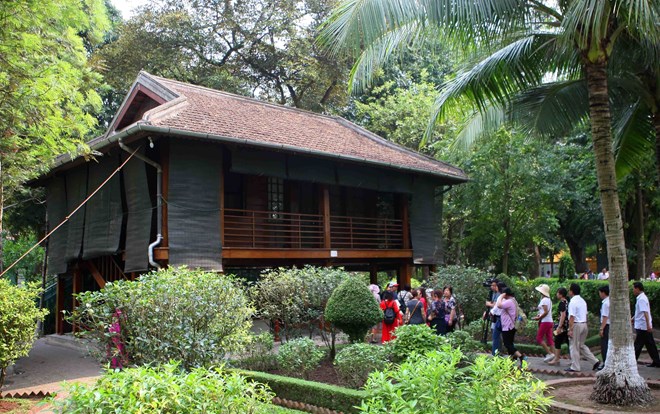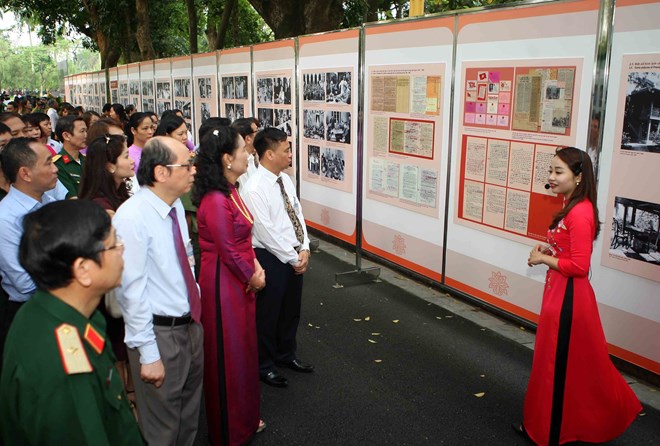Stilt houses associated with President Ho Chi Minh’s revolutionary activities
 |
|
The stilt house of late President Ho Chi Minh in Hanoi (Photo: VNA) |
The event is part of activities to celebrate the 128th birthday of President Ho Chi Minh (May 19, 1890).
The exhibition was divided into three parts titled “President Ho Chi Minh and stilt houses in Viet Bac revolutionary base”, “Uncle Ho’s stilt house in Hanoi”, and “Uncle Ho’s stilt house – symbol of thought, morality, style, national solidarity spirit and international integration”.A seminar was held the same day to promote the conservation of national relic sites recording the life and revolutionary career of President Ho Chi Minh.
Participants shared stories about President Ho Chi Minh’s revolutionary activities associated with stilt houses.
President Ho Chi Minh lived and worked in many places in Vietnam as well as the world when he was alive. There are nearly 700 relic sites across 35 cities and provinces relating to his life and revolutionary career.
Stilt houses had been attached to the President when he was in the Viet Bac revolutionary base and then returned to Hanoi capital.
 |
|
Visitors to the photo exhibition on the stilt houses of President Ho Chi Minh that opens in Hanoi on May 11 (Photo: VNA) |
The houses have become a close image to Vietnamese people. The Presidential Palace’s relic site where President Ho Chi Minh lived and worked from late December 1954 to September 1969 is a popular destination for both domestic and foreign visitors with a stilt house, a fishing pond, and orchards.
During his 11-year stay in the stilt house there from May 1958, President Ho Chi Minh along with Party and Government officials mapped out a lot of important strategies and policies leading to Vietnam’s victory.
President Ho Chi Minh was born into a patriotic Confucian family in Nam Dan district, in the central province of Nghe An, on May 19, 1890.
He was a talented leader, a great master of the Vietnamese Revolution, a national hero and a world cultural celebrity, who devoted all his life to the national independence and freedom and happiness of the people while tirelessly striving for peace and progress in the world.
The President led the nation to success in the struggle for national independence.
On September 2, 1945, President Ho Chi Minh read the Declaration of Independence, declaring to the world the foundation of the Democratic Republic of Vietnam, now the Socialist Republic of Vietnam.

